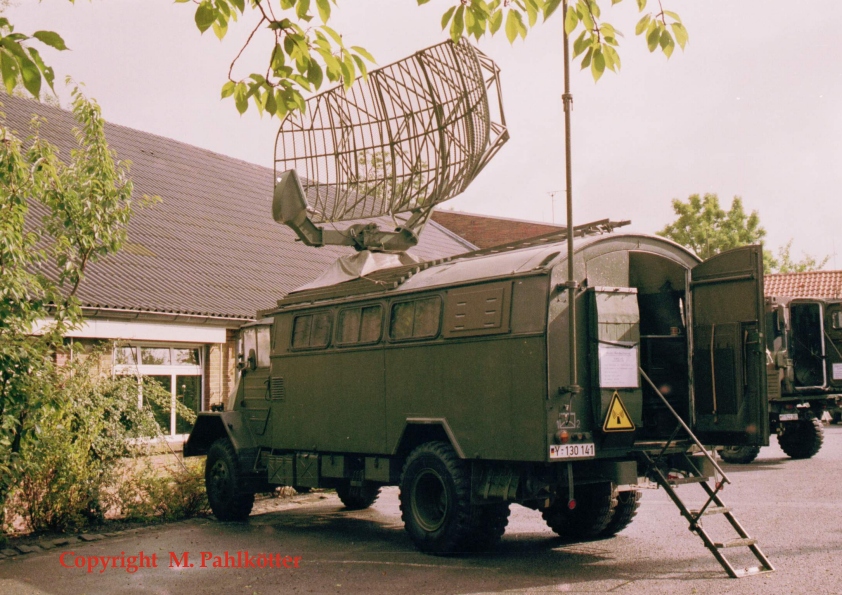AN/TPS-1E
Description of the radar set, tactical-technical characteristics

| Specifications | |
|---|---|
| frequency: | 1 220 … 1 350 MHz |
| pulse repetition time (PRT): | |
| pulse repetition frequency (PRF): | 360 … 380 … 400 Hz |
| pulsewidth (τ): | 2.7 µs |
| receive time: | |
| dead time: | |
| peak power: | 500 kW |
| average power: | 500 W |
| instrumented range: | 160 miles |
| range resolution: | |
| accuracy: | Range: ±(3% + 1 NM) Azimuth:±1° |
| beamwidth: | 3.4 to 4 degrees |
| hits per scan: | |
| antenna rotation: | 1 … 15 rpm |
| MTBCF: | |
| MTTR: | |
AN/TPS-1E
The AN/TPS-1E was lightweight portable search radar developed during World War II to provide early warning of enemy air attacks. They were intended for short-range surveillance as gap-fillers and for the designaltion of targets for anti-aircraft units (e.g. NIKE Hercules units of German Bundeswehr). These radars were used until the 1990s.
The transmitter used a magnetron of type 5J26, that was keyed on/off by the modulator using a thyratron of type 5C22.
The AN/TPS-1 was developed by Bell Telephone laboratories from a wartime original through 'B' and 'C' variants. It was later manufactured by Western Electric; now p.o. Lockheed Martin. Some sets are manufactured under license by Microlambda (Italy), now Selex Sistemi Integrati.
Sources and ressorces:
- Galati Gaspare: ''100 Years of Radar'' Springer Verlag, 1st ed. 2016 (28. September 2015), ISBN 978-3-319-00583-6, S.205 (online preview)

